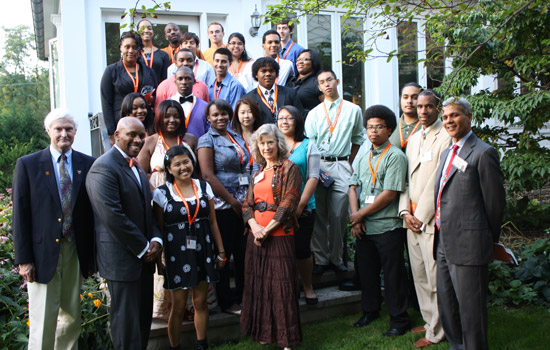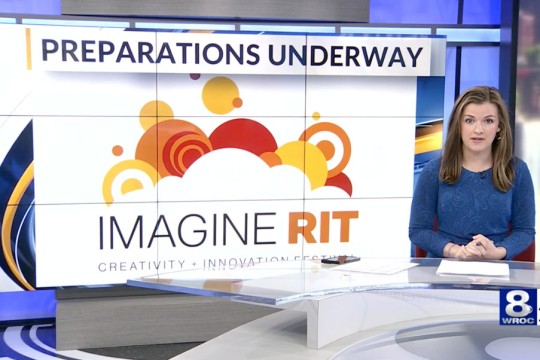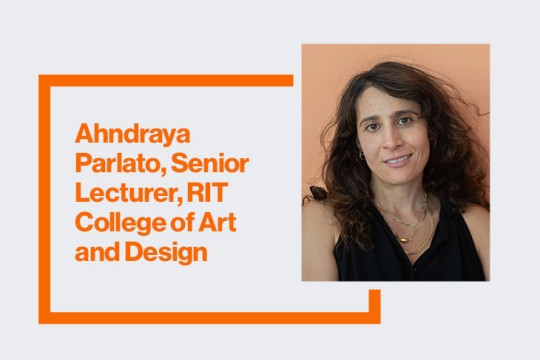Diversity leads to enrichment, prosperity
Jonathan Ntheketha
RIT and Rochester School District leaders welcome the 2011 Rochester City Scholars. The scholarship, in its second year, enables 51 students to attend RIT tuition-free.
Diversity comes in a variety of shapes and sizes, colors and forms. We take a holistic approach to diversity at RIT, and it is interwoven into the fabric of the university.
As you read “The Year in Review” on pages 36-39, understand that diversity plays a key component in RIT’s future success. For example, we set goals and track measurements in the following areas: the number of female and minority freshmen; the number of female and minority faculty members and new hires; international students enrolled on the main campus; RIT students studying abroad; co-op students getting experience at multi-national corporations; the amount of intellectual property produced by researchers, including at the National Technical Institute for the Deaf. And the list continues.
Intellectual diversity is a strong RIT trait. Where else can you find students studying photography, packaging science and engineering on the same campus? Or business majors working with furniture design students? Or deaf students and hearing students working on team projects? This kind of intellectual and cultural diversity is available only at RIT, and it provides an extraordinary outside-the-classroom educational opportunity to all our students.
Yet we must improve and forge ahead. For example, although our female undergraduate enrollment in engineering and other science, technology, engineering and math (STEM) fields has been increasing, overall female enrollment has stagnated at about 34 percent of our undergraduate students due to declining female enrollments in other colleges and programs. We need to focus our attention to achieve our stated goal of having women represent 40 percent of all undergraduates.
Simply put: A diverse RIT equals an enriched and prosperous RIT.
Finally, we in academia have an opportunity to serve as examples of how to engage in civil discourse in an increasingly polarized nation. Many of us are dismayed at the extent to which intelligent discussions on complex issues can seemingly no longer be held without the kind of hysterical acrimony that only serves to harden positions and make compromise impossible.
Let us all remember that colleges and universities, of all organizations, must remain forums for open and respected discussion of controversial issues. We are all part of a learning community, and much of our learning comes from each other. Respect for the opinions of others, even when we strongly disagree with them, must be a cornerstone of our campus community. If we practice this principle, surely our students will also get the message, to the benefit of our community and our country.
Cordially Yours,
Bill Destler
President















